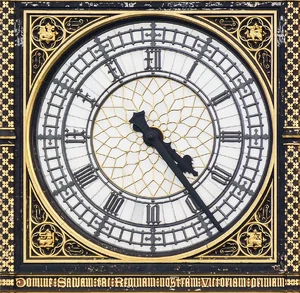
octave
Members-
Posts
4,008 -
Joined
-
Last visited
-
Days Won
40
Content Type
Profiles
Forums
Gallery
Downloads
Blogs
Events
Our Shop
Movies
Everything posted by octave
-
Adoption of electric vehicles tied to real-world reductions in air pollution, study finds "Using satellite data, Keck School of Medicine of USC researchers reported the first statistically significant decrease in nitrogen dioxide linked to zero-emissions vehicles."
-
I thought I would have a look at what rare earth minerals are used for. Lanthanum (La) Camera and telescope lenses (high refractive index glass) Nickel-metal hydride (NiMH) batteries (hybrid vehicles) Oil refining catalysts Hydrogen storage alloys Cerium (Ce) Glass polishing (phones, screens, optics) Catalytic converters Self-cleaning ovens UV-blocking glass Praseodymium (Pr) Permanent magnets (with neodymium) Aircraft engines (high-strength alloys) Yellow pigments for glass and ceramics Neodymium (Nd) High-strength permanent magnets (NdFeB) Electric vehicle motors Wind turbine generators Headphones, speakers, hard drives Promethium (Pm) (very rare & radioactive) Nuclear batteries (limited use) Thickness gauges Research applications only Samarium (Sm) Samarium-cobalt magnets (high-temperature, defence) Nuclear reactor control rods Microwave devices ⚙️ Medium / Heavy Rare Earth Elements (HREEs) Europium (Eu) Red phosphors in TV and LED screens Anti-counterfeiting inks (banknotes) Fluorescent lighting Gadolinium (Gd) MRI contrast agents Neutron shielding Magnetic refrigeration research Terbium (Tb) Green phosphors (displays) Strengthens neodymium magnets for high heat Sonar and sensors Dysprosium (Dy) High-temperature permanent magnets Electric vehicles and wind turbines Nuclear reactor components Holmium (Ho) Medical lasers Nuclear control rods Precision magnetic devices Erbium (Er) Fibre-optic signal amplifiers Laser technology Pink colouring for glass Thulium (Tm) Portable X-ray machines Medical lasers Radiation sources (very niche) Ytterbium (Yb) Stainless steel strengthening Fibre lasers Atomic clocks Lutetium (Lu) PET scan detectors Cancer treatment catalysts Oil refinery catalysts ➕ Related Rare Earths (Not Lanthanides) Scandium (Sc) Aluminium-scandium alloys (aerospace, sports gear) Solid oxide fuel cells High-intensity lamps Yttrium (Y) LEDs and display phosphors Thermal barrier coatings (jet engines) Superconductors Cancer treatments (Y-90)
-
-
It's not easy to understand why the rest of us get blamed for Bondi.
octave replied to Grumpy Old Nasho's topic in Politics
Generally, I favour speech being as free as possible. Obviously inciting someone to violent acts or impuning someones reputation with falsehoods needs some limits on it. I am not necessarily an enthusiastic supporter or detractor of the new bill. My point is that these are not new restrictions; they have been tweaked as far as I can see. It is hard to argue that all of a sudden, we are all going to be highly regulated. The things you could say are not really so different from before. There will always be controversial edge cases. "Is it likely to incite violence or not?" I would suggest that for most of us, we are unlikely to ever stray into that territory since we obviously haven't previously. -
It's not easy to understand why the rest of us get blamed for Bondi.
octave replied to Grumpy Old Nasho's topic in Politics
We already have laws that place some restrictions on speech. Free speech has never been absolute. These are things you could have problems with threaten people incite violence harass or intimidate defame others. These restrictions have been around for many years. Why are you not all nervous about these restrictions? Have you actually read any of the bill? The Bill would introduce a new aggravated offence for religious or other leaders who advocate or threaten force or violence against groups, members of groups, their close associates, or their property, in contravention of sections 80.2A to 80.2BE of the Criminal Code Act 1995. The offence applies if a person, in their capacity as a religious or other leader, advocates or threatens force or violence in the course of providing religious instruction, or religious or secular pastoral care. -
It's not easy to understand why the rest of us get blamed for Bondi.
octave replied to Grumpy Old Nasho's topic in Politics
This is short summary https://www.ag.gov.au/crime/publications/fact-sheet-combatting-antisemitism-hate-and-extremism-bill-2026 -
It's not easy to understand why the rest of us get blamed for Bondi.
octave replied to Grumpy Old Nasho's topic in Politics
Just wondering in what way it will curtail your speech. What is it you want to say but think you will no longer be able to say? -
It's not easy to understand why the rest of us get blamed for Bondi.
octave replied to Grumpy Old Nasho's topic in Politics
Because a small number of people do drive drunk. Random breath testing literally does save lives. If it is a choice between offending your overly delicate feelings or preventing a drunk driver from killing someone, I think most rational, well-adjusted people will accept the trade-off. -
It's not easy to understand why the rest of us get blamed for Bondi.
octave replied to Grumpy Old Nasho's topic in Politics
Jeez, you do seem to be overly sensitive. When you fly, and you go through airport security, are you upset because you think the security staff are accusing you of carrying weapons? Random breath testing is not just about catching an individual who is a danger on the road, but more importantly, it is a deterrent against attempting to drink and drive. There are already laws against what you can and can't say (defamation). Do you believe that this means "everyone is a suspect?" There are many things we are called upon to do to keep society running relatively smoothly. When I rent a car (or many other transactions), I am not offended by having to show my driver's license or ID. I don't believe I am presumed to be guilty of anything. When travelling overseas, whilst it is a slight burden, the customs officer may want to look inside my bag. I do not take this as some kind of personal attack or allegation. None of these examples makes me feel "guilty" -
Well known personalities who have passed away recently (Renamed)
octave replied to onetrack's topic in General Discussion
No thanks -
Well known personalities who have passed away recently (Renamed)
octave replied to onetrack's topic in General Discussion
I suspect the orange idiot will be gone soon -
-
4 clock faces, but this does not help.
-
Here is an interesting question. Without searching the internet, can anyone guess how many times"X" appears on the clock face(s) of the Big Ben clock? (Big Ben is actually the name of the bell.)
-
My son has been in China for the last couple of weeks and has shared some interesting pictures. He did a tour of a nuclear facility that was almost completed in the 80s. This facility was not for nuclear power but for the production of nuclear weapons. Started in 1964, it was discontinued in 1984. https://en.wikipedia.org/wiki/816_Nuclear_Military_Plant
- 1 reply
-
- 1
-

-
I was just reminded by an article about an event 50 years ago today. I was growing up in Adelaide, and I was 13 years old. The Dunstan government had just decriminalised homosexuality, being the first state to do so. A religious nutter who claimed to be a clairvoyant predicted that this would cause a tidal wave on this day at midday, and it would wipe out Adelaide. Although apparently some took it seriously, a few sold their houses and moved, it was mostly treated a little more lightheartedly. Some workers turned up to their jobs in flippers and floaties. I can remember "I survived the Adelaide tidal wave" T-shirts. The Premier, the colourful Don Dunstan, stood on a balcony at Glenelg saying if the tidal wave came, he would turn it back.
-
I am pretty satisfied with my bank. The bank is owned by the customers, and I get to vote on remuneration for the board and on other issues, such as a recent merger. The board and executive are not on enormous salaries like the big banks. My accounts have no fees at all because of the way I use them. It does not have many branches; however, if I did want to use cash, I could use any post office. Non-Executive Director Remuneration (2024) The total pool for all Non-Executive Directors' (NEDs) pay was $895,698 per annum, an increase of 2.75% subject to member approval. Individual NED compensation for that year was intended to be as follows: Base Remuneration (NED): $95,287 p.a. (up from $92,737). Committee Chairs: $114,344 p.a. (a 20% loading on base remuneration). Board Chair: $171,517 p.a. (an 80% loading on base remuneration). Executive Compensation As a mutual bank, Bank Australia's executive compensation structure and specific individual pay packets are not reported in the same way as the publicly listed "big four" Australian banks (CBA, NAB, Westpac, ANZ). Data from third-party sites suggests a wide range for various management roles within the bank, with an average salary for an Executive Manager role estimated around $207,111 per year based on user submissions. In contrast, CEOs of major ASX-listed banks have significantly higher total compensation packages, with figures for Matt Comyn (CBA) at $8.5 million and Andrew Irvine (NAB) at $5.62 million in 2025, which include substantial bonuses and stock options
-
My son's partner is Chinese, although now a New Zealander. We met her for the first time when they visited a couple of years ago. We cooked a meal together. She taught us how to make traditional Chinese veges and this great spicy mashed potato and we showed her how to cook kangaroo correctly. Being her first time in Australia, she was keen to pet a kangaroo and eat one.
-
Actually thinking about it and allowing for the nuances of translation, this does make sense. I believe that aged beef is a thing in our culture also beef with a lot of fat, such as wagyu. There is a little something lost in the translation, though.
-
mmm deleted- mysterious double post
-
He did actually have donkey meat for breakfast - true story
-
So my son is in China at the moment. He sends me interesting pictures every day, but this one did make me laugh
-
The Bloody Fool has gone too far He's started a War!
octave replied to old man emu's topic in General Discussion
-
The Bloody Fool has gone too far He's started a War!
octave replied to old man emu's topic in General Discussion
been talking about it for as long as the Epstein files have been in the headlines



















